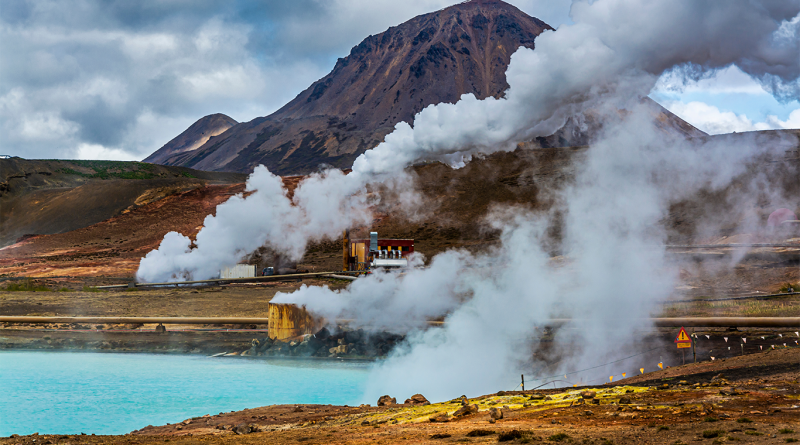Microsoft and G42’s $1B Geothermal Data Center in Kenya
The collaboration between Microsoft and G42 to establish a $1 billion geothermal-powered data center in Kenya marks a significant milestone in the intersection of technology and sustainability. This pioneering project aims to leverage renewable geothermal energy to power data centers, setting a precedent for green tech infrastructure in Africa.
The Power of Geothermal Energy
Geothermal energy, derived from the natural heat of the earth, stands out as one of the most sustainable and reliable renewable energy sources. Unlike solar and wind energy, which are dependent on weather conditions, geothermal energy provides a constant power output. This makes it an ideal choice for powering data centers, which require uninterrupted energy supplies to ensure operational efficiency.
Globally, countries like Iceland and the Philippines have successfully harnessed geothermal energy to meet a significant portion of their energy needs. These examples highlight the potential of geothermal energy to contribute to a more sustainable future. In Kenya, the Rift Valley’s geothermal fields present a unique opportunity to tap into this clean energy source, reducing reliance on fossil fuels and decreasing greenhouse gas emissions.
Microsoft’s Commitment to Sustainability
Microsoft has long been a frontrunner in the tech industry’s shift towards sustainability. The company has set ambitious goals, such as achieving carbon negativity by 2030 and using 100% renewable energy in their data centers by 2025. This geothermal data center in Kenya is a crucial step towards these objectives.
Microsoft’s previous initiatives include the use of wind and solar energy to power their global data centers, as well as significant investments in carbon removal technologies. This new project in Kenya not only aligns with their sustainability goals but also showcases their commitment to fostering technological advancement in developing regions. By choosing geothermal energy, Microsoft is emphasizing the importance of exploring diverse renewable energy sources to achieve a sustainable future.
G42 and Its Technological Impact
G42, a leading AI and cloud computing company based in Abu Dhabi, has been instrumental in driving technological innovation across various sectors. Their expertise in data infrastructure and AI solutions complements Microsoft’s vision for sustainable tech development.
G42 has undertaken several significant projects, including the development of advanced healthcare solutions and smart city technologies. Their collaboration with Microsoft on the Kenyan data center project underscores their commitment to leveraging technology for societal benefit. This partnership is poised to enhance Kenya’s technological landscape, providing a robust and sustainable foundation for future digital advancements.
Kenya’s Renewable Energy Landscape
Kenya has made remarkable strides in the renewable energy sector, with a particular focus on geothermal energy. The country is home to the Olkaria Geothermal Plant, one of the largest geothermal power plants in Africa. This existing infrastructure and expertise in geothermal energy provide a solid foundation for the new data center project.
The Kenyan government has been proactive in promoting renewable energy through favorable policies and investments. Initiatives such as the Geothermal Development Company (GDC) aim to explore and develop geothermal resources further. The introduction of the geothermal-powered data center aligns with Kenya’s vision of becoming a regional leader in green energy, showcasing the potential for large-scale renewable energy projects in Africa.
Economic and Social Impact
The establishment of the geothermal data center is expected to bring substantial economic benefits to Kenya. The $1 billion investment will create numerous job opportunities, both directly and indirectly. From construction to ongoing operations, the project will require a diverse workforce, fostering skill development and employment growth in the region.
Moreover, the data center will enhance Kenya’s digital infrastructure, attracting further tech investments and positioning the country as a hub for technological innovation in Africa. The use of renewable energy will also contribute to environmental sustainability, reducing the carbon footprint and promoting a cleaner, healthier environment for local communities.
In the long term, the collaboration between Microsoft and G42 will serve as a model for sustainable tech development, inspiring other companies and countries to explore renewable energy solutions. This project not only represents a significant technological advancement but also a commitment to environmental stewardship and economic growth.
The partnership between Microsoft and G42 to launch a geothermal-powered data center in Kenya is a groundbreaking endeavor that blends technological innovation with environmental sustainability. As this project unfolds, it promises to set a new standard for green tech infrastructure, driving progress towards a more sustainable and prosperous future.
Sources:
- Geothermal Energy: Sustainable Development
- Microsoft’s Global Sustainability Initiatives
- G42 Technological Contributions
- Kenya’s Renewable Energy Landscape
- Economic Impact of Tech Investments in Africa
